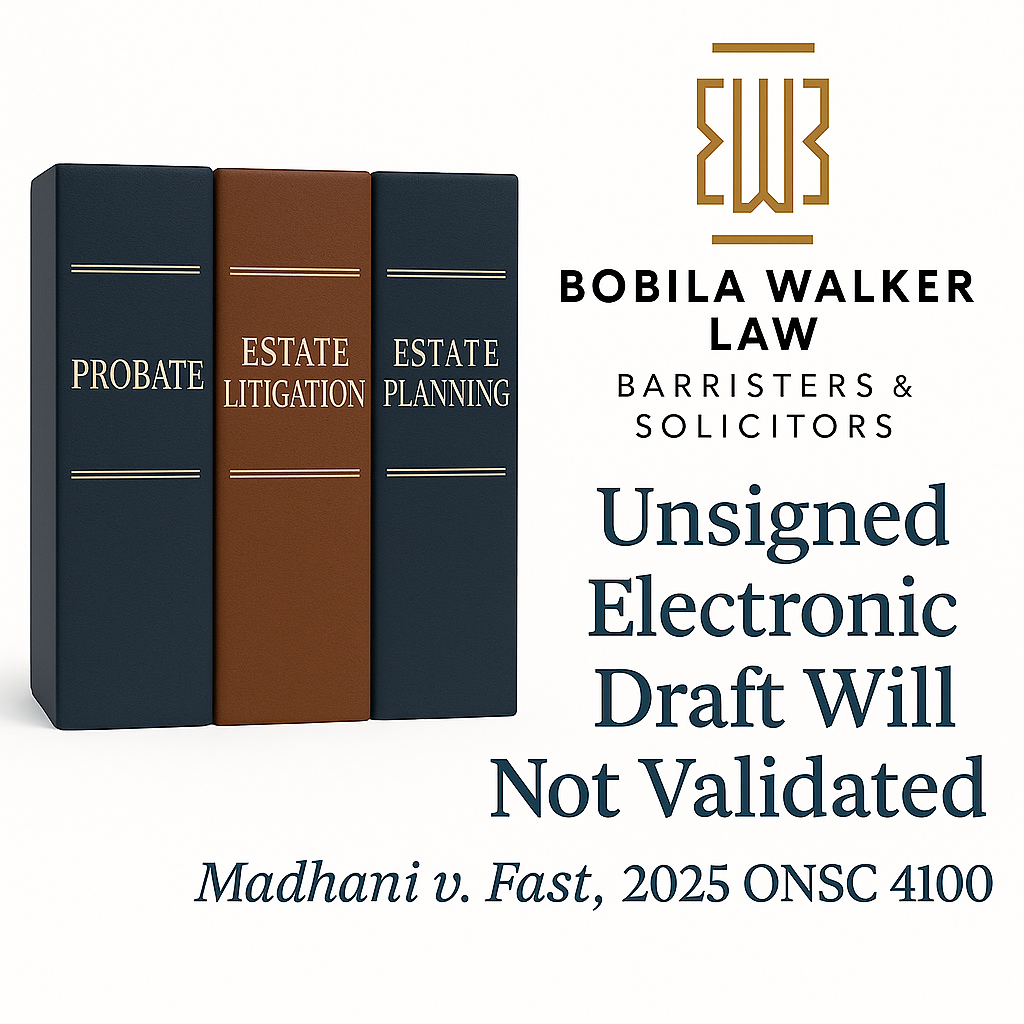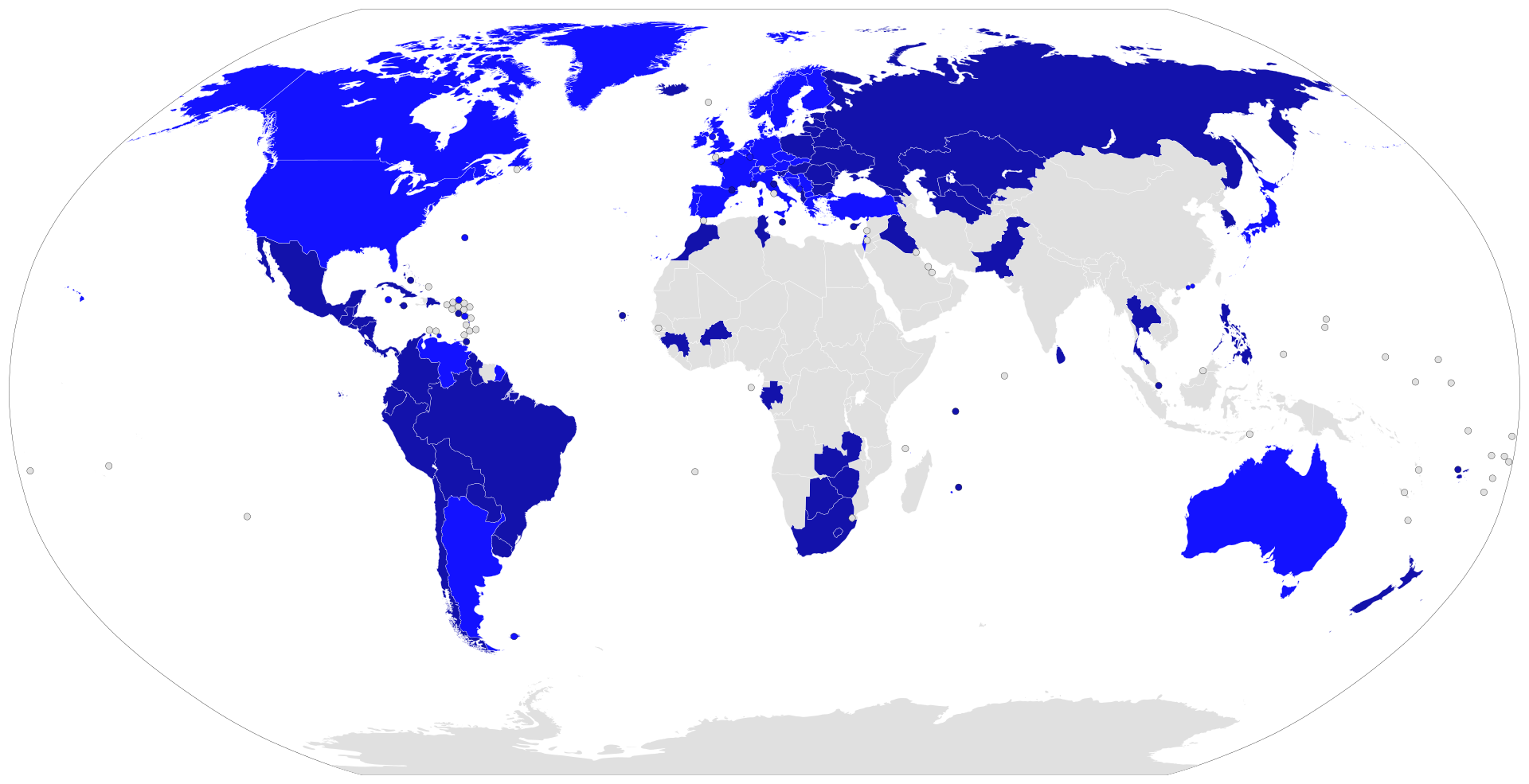Overview
In Madhani v. Fast, 2025 ONSC 4100, the Ontario Superior Court of Justice was asked to determine whether an unsigned draft will could be validated under s. 21.1 of the Succession Law Reform Act (SLRA). The testator, Jamshed Mavalwala, died the very morning he was scheduled to sign the new will. Justice Sanfilippo ultimately held that the draft could not be recognized as a valid will, both because it existed only electronically and because there was no evidence that it reflected Jamshed’s fixed and final testamentary intentions.
The Facts
Jamshed Mavalwala, a retired anthropology professor, executed a valid will in 2021 leaving his estate to children, siblings, nieces, and nephews. By 2022, he sought to update his plan. With the help of his niece Neha and her husband Zeeshan, who was already named estate trustee, he worked with lawyer Lisa Boutilier to prepare a new will. Multiple drafts were exchanged. The last version, dated October 28, 2023, excluded his estranged sons, adjusted gifts among family, and added charitable provisions.
A meeting was booked for November 10, 2023 for Jamshed to meet privately with Ms. Boutilier and sign the final draft. He had arranged Wheel-Trans transportation and even prepared a cheque for her account. Tragically, he died in his apartment that very morning. The unsigned draft remained only as an electronic Word document. Zeeshan, acting as estate trustee, brought an application to have the draft will declared valid under the SLRA’s curative provision.
The Law
Section 21.1 of the SLRA empowers the court to validate a document that was not properly executed if it embodies the deceased’s testamentary intentions. However, subsection 21.1(2) makes this power subject to the Electronic Commerce Act, which expressly excludes wills and codicils from recognition as electronic documents.
Ontario courts have, since 2022, validated wills that were improperly witnessed, provided there was clear evidence of intention. The jurisprudence emphasizes that the document must be a deliberate, fixed, and final expression of how the testator wanted their property disposed of after death. An unsigned draft can sometimes qualify, but the burden of proof is higher.
Analysis
Justice Sanfilippo found that the draft will failed on two fronts. First, it existed only in electronic form. Because electronic wills are explicitly excluded under Ontario legislation, the court had no authority to validate it. That alone was determinative.
Second, even if the electronic hurdle could be overcome, the evidence did not show that the draft reflected Jamshed’s final instructions. The lawyer never had the opportunity to review the document with him alone, which was her standard practice to ensure accuracy and voluntariness. The only statement of approval came indirectly through Neha, and it related to an earlier draft, not the final one. Without Jamshed’s signature or direct confirmation, there was no reliable proof that the draft represented his deliberate, fixed, and final testamentary wishes.
Lessons Learned
This case highlights the limits of Ontario’s curative provision. Section 21.1 offers relief where wills are technically deficient, but it does not extend to electronic drafts. It also underscores the evidentiary value of a signature and a final review meeting with counsel. Testators may express intentions, but unless those intentions are confirmed in a final and approved document, courts will not treat them as binding. For estate trustees and families, the lesson is clear: ensure wills are executed promptly and in compliance with statutory requirements. Drafts and expressions of intention are not enough.
At Bobila Walker Law, we help families avoid precisely the kind of uncertainty that arose in Madhani v. Fast. Whether you are preparing your first will, updating an existing plan, or facing estate litigation, our team ensures your wishes are properly documented and protected. Thoughtful planning today prevents costly disputes tomorrow. Contact us at 416-847-1859 or via email at info@bobilawalkerlaw.com






